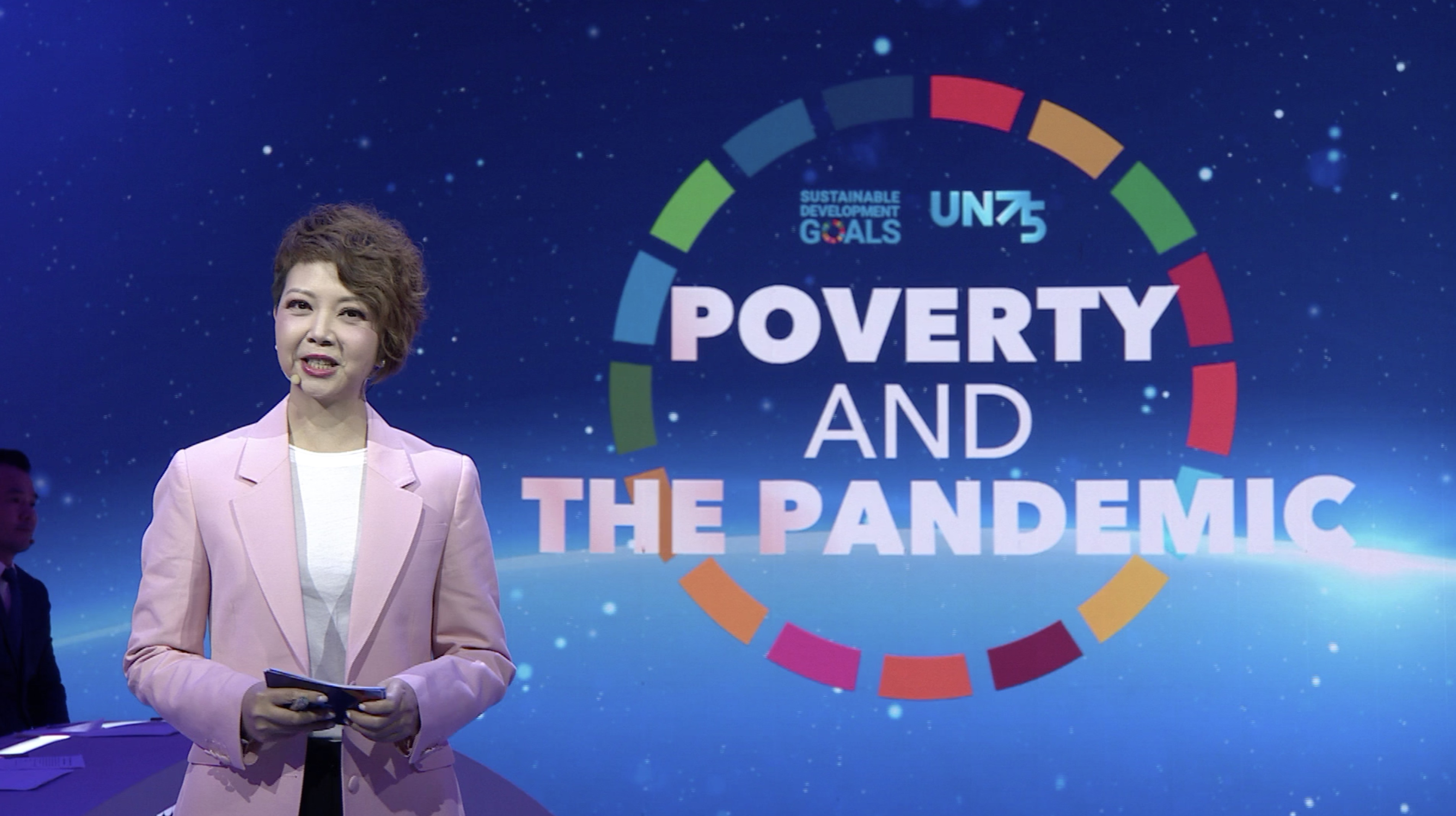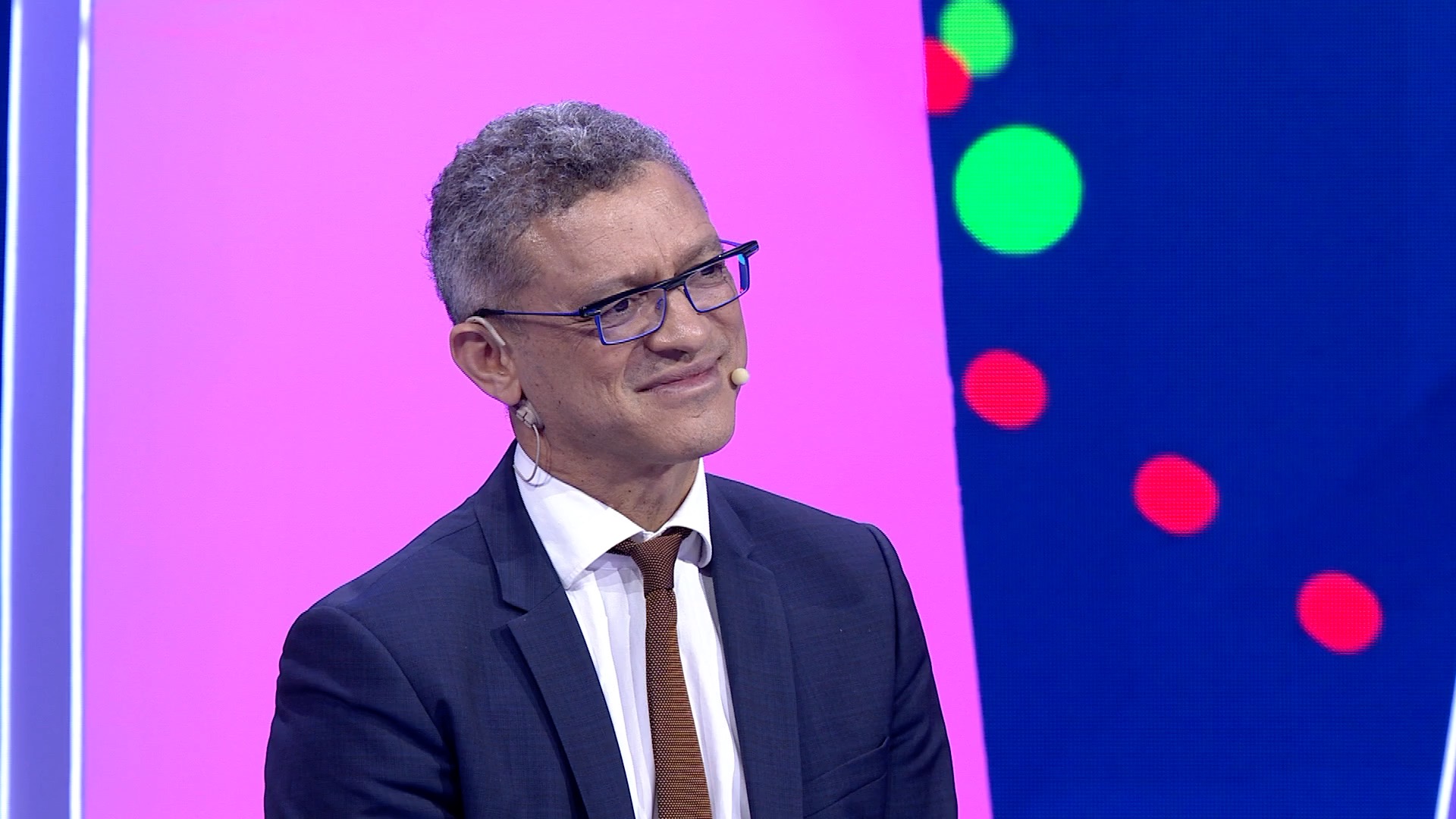58:30

Ending poverty is a part of the 17 global goals that make up the UN's 2030 Agenda for Sustainable Development. With less than 10 years left to meet the deadline, a pandemic of unprecedented scale has devastated societies all over the world. How has COVID-19 impacted poverty reduction? What are the solutions? What needs to be done to achieve the Sustainable Development Goals (SDGs) by 2030?
International experts shared their views this week at the forum on "Poverty and Pandemic" co-hosted by CGTN Think Tank, the Schiller Institute, the Bridge Tank, ChinaEU, the South African Institute of International Affairs, the Dialogue of Civilizations Research Institute and the Russian-Chinese Analytical Center.
The existence of a strong link between COVID-19 and poverty was a consensus reached at the forum. The spread of the virus has disturbed demand and supply, slowed the circulation of goods and services, and hampered the flow of capital across the globe.
The pain is global. Li Xiaoyun, lead chair professor at China Agricultural University, used the example of a small village in China's Yunnan Province. As a result of the pandemic, the village, reliant on tourism, saw its major income source "completely cut off" from January to July this year.
The situation in South Africa is not positive either. Philani Mthembu, executive director at the Institute for Global Dialogue, emphasized the pains South Africa's informal economy has suffered during the pandemic. "There does need to be attention when it comes to poverty reduction measures to really look at the support mechanisms for the informal sector and try to bring their level of trade up," Mthembu told the forum.
01:50

Few people would think of the United States when it comes to poverty. But during the COVID-19 pandemic, long lines going back kilometers at food banks were a common scene in the world's largest economy. "Some of the sources indicate 38 million Americans are living under the UN criteria of poverty," Liu Yawei, senior adviser on China at the Carter Center, told the forum. American companies, Liu said, are forcing employees to retire at an early age. This has further aggravated the economic burdens on ordinary American citizens.
No country, be it rich or poor, is immune from the COVID-19 pandemic. Decades of progress in reducing extreme poverty is in danger of slipping away as a result of the virus. According to the World Bank, the first global increase in extreme poverty in 22 years is possible. Up to 100 million people could be pushed back into extreme poverty in 2020.
What can be done? For experts at the forum, money is only part of the solution. The COVID-19 pandemic is definitely not the last in human history, and so building resilience in local economies is the key. "It's very important to look at how we enable the digital economy at a faster rate. That's a part of building the resilience so that we can have a cushion in the event of lockdowns," Leslie Maasdorp, vice president and chief financial officer at the New Development Bank, emphasized.
01:34

Financial tools including via the China-proposed Belt and Road Initiative and the New Development Bank, Mthembu said, are also vital in overcoming the crises. "If we can channel some of that funding towards building resilience at [not only] the local economy, but also at regional economies, we do stand a chance of fighting poverty in the long term in a more sustainable manner," he said.
In Yunnan's case, innovation has helped villagers to get through the pandemic. As the tourism-driven economy stuttered, locals diverted their attention back to agriculture. Some of them, as Li observed, have started to sell homemade honey on e-commerce platforms. Innovation diversifies villagers' sources of income, and diversified income has made local economies more resilient.
A resilient economy is important, but not enough to end poverty by 2030. Experts at the forum agreed that an effective governance system carries equal weight. Iain Begg, professorial research fellow at the London School of Economics, stressed the significance of states in meeting the SDGs. "What the pandemic has illustrated is that the state has the vital role to play in a number of areas in both responding immediately in cushioning the negative effects of the pandemic, but also reinventing itself to find ways to take things forward."
Sergey Sanakoev, president of the Russian-Chinese Analytical Center, echoed this view. "Twenty years ago here in Russia, we all thought that market will solve any kind of problems. Now, we understand it was a big mistake," Sanakoev said at the forum, emphasizing that the "optimal conjunction of market and state" like the one in China is the best way forward.
But without international cooperation, all the suggested solutions are empty talk. At present, multiple crises are going on at the same time, and, worse still, are interacting and reinforcing one another. This highlights the importance of global solidarity. "The lack of international cooperation is another [format] of poverty, probably a more daunting one that has to be addressed," Liu warned. Global crises require a global answer. But apparently, the world, with the U.S. withdrawing from the WHO in the middle of the pandemic, is not doing enough in this regard.
The word "crisis" is made up of two characters – danger and opportunity – in Chinese. The COVID-19 pandemic has demonstrated where our weaknesses lie: a lack of resilience in economies, an overemphasis on the market and a lack of global solidarity. It is hoped that the international community can use it as an opportunity to create healthier economies, more balanced governance systems and a more sustainable future.
(If you want to contribute and have specific expertise, please contact us at opinions@cgtn.com.)